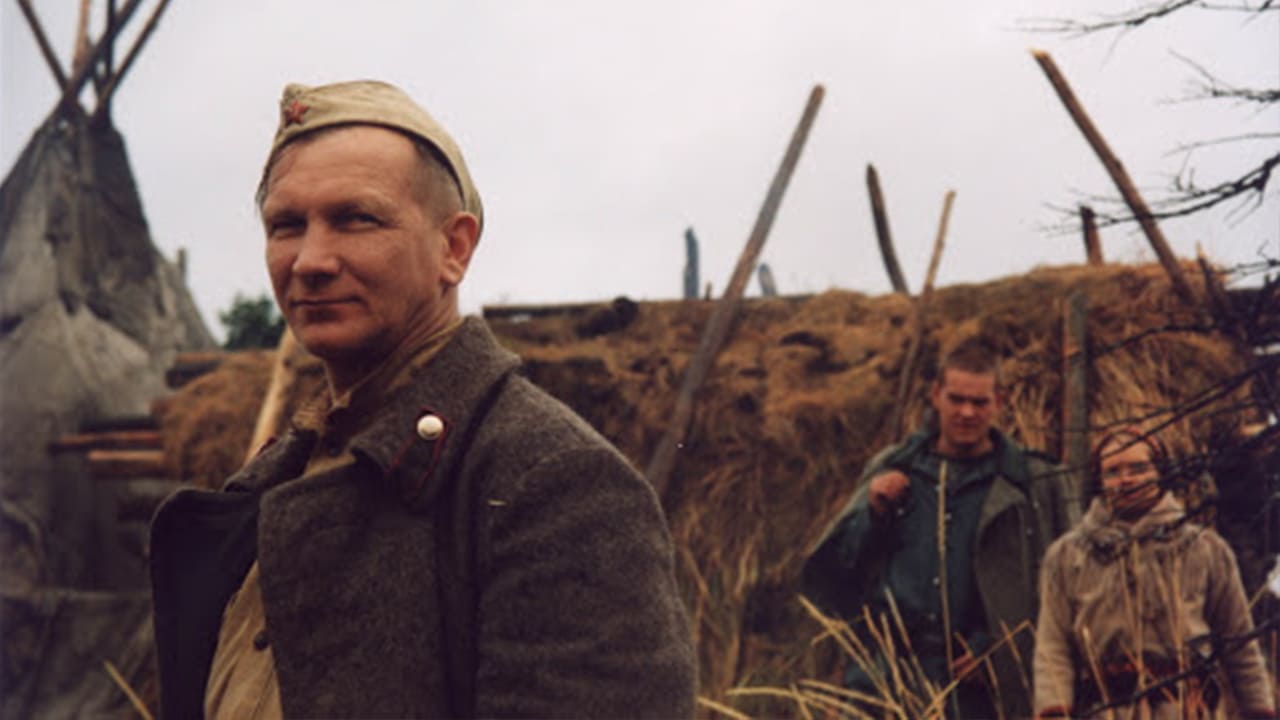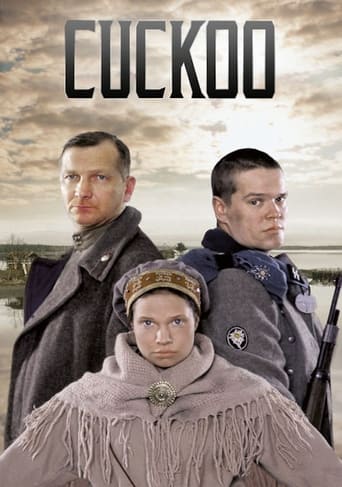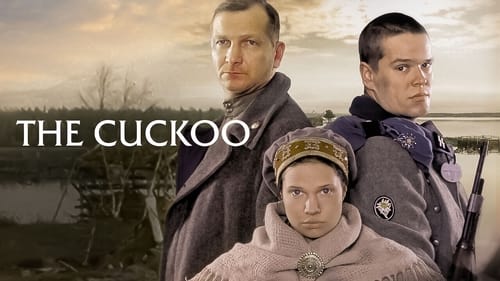


Absolutely heart-warming comedy about two stranded soldiers from opposite lines who get both taken in by a beautiful, child-of-nature like woman in the remote wilderness between Finland and the Soviet-Union. The trio speak three different languages, and on top of all the linguistic chaos, the two men naturally try to continue the warfare against each other. 'Kukushka' plays like an ode to humanity and is just a pure joy to watch. 8 stars out of 10.In case you're interested in more underrated masterpieces, here's some of my favorites:imdb.com/list/ls070242495
... View MoreOne of the best movies I've seen lately.Three different languages: Russian, Finnish and Sami (Lapp) and 3 different cultures: an army captain, an educated soldier that wants to leave the war and a Lapp woman taking care of her deer farm alone for years who could be 16 or 30 years old.What do 3 people do with each other who literally can not understand a world the others speak? Do they try to learn to communicate? Do they kill each other? Do they hate or love each other?I have felt enchanted over the whole movie showing real human destinies of the last days of WW II without great morals, exaggerated action or acting.Can only recommend!
... View MoreI do not want to go into details described in other reviews. Yes, this movie is amazing by the fact the main protagonists cannot speak to each other because of totally different languages.But there is one scene that left me stunned: The "Wolf's call" scene, where Kukushka uses very strange and very chilling ritual to call back the dying one from "the otherworld" back to the life. It is absolutely stunning, I had to watch this one particular scene over and over again. It is absolutely stunning introduction to the north European mythology.Great, great movie!
... View MoreThere are anti-war films that preach for justice; for example, Paths of Glory (1957). There are those that scream blue murder, like Apocalypse Now (1979). Then, there are those that savagely satirize, as we have seen with Catch-22 (1970).Seldom, however, do we see an anti-war film presented as a simple need for communication, for understanding and, ultimately, for love.This is a brilliantly conceived and photographed story, with the title a clever play on meaning in different languages. Apart from the azure skies, pristine forests and limpid waters of Lapland, it's also brilliant in conception and an astonishing statement about the nature of language and, indeed, the language of nature. Hence, with apologies to Sir Winston Churchill, perhaps never in the field of human relationships have so few achieved so much with so little; including the director of this visual and acting gem, Aleksandr Rogozhkin.The time is late 1944, World War II, somewhere in Lapland (presumably), with Finns, Russians and Germans all fighting each other. The story opens with a small band of Finnish soldiers leaving a young soldier, Veikko (Ville Haapasalo) pinned, by a chain attached to his right leg, atop a small rocky outcrop and fully exposed to the bitter cold - and to any Germans or Russians who might just turn up. Veikko is being punished for rebelling against the war. His reward: tied down with a chain and a sniper rifle and left to fight and die. As the others leave, however, he starts attempting to work free the large steel stake that's been hammered into the rock. His escape attempts, exquisitely photographed, consume the first twenty minutes or so of screen time.Cut to a small group of Russian soldiers, stragglers and die-hards, all trying to make sense of what's happening except a colonel and his driver who are transporting a prisoner, Ivan (Viktor Bychkov) to face court-martial because of his outspoken views about the war. The three are traveling in a jeep-type vehicle and generally in the direction of Veikko, still cleverly working himself free from that rocky hill.Cut to a scene of a woman of the woods, Anni (Anni-Kristiina Juuso), a Saami of Lapland the Saami being ancient indigenes of those areas - who lives alone at her small hut and reindeer farm on the edge of a lake that takes your breath away. She's walking through her territory, always looking, almost animal-like, mysterious, and very much at home within the natural world. She is nature personified, almost mythical...Cut back to Veikko, now close to freeing himself as the Russian jeep approaches and, now also, as a couple of Russian fighter-bombers (looking like venerable North American Harvards) swoop in low to strafe the jeep (obviously mistaking the occupants for Finns or Germans) and then return to loose a couple of bombs and blow it up. Soon after that, and while Veikko watches, the Saami woman, Anni, emerges from the forest and proceeds to bury the dead, a thoughtfully poignant scene. In doing so, she realizes one Ivan - is alive and drags him back to her hut to tend to his wounds.Veikko finally frees the stake and follows her to her hut. And so, the fun starts.Anni has been without a man for four years, her husband dragged off to war and presumed dead. She speaks only the Saami language. The Russian, Ivan, speaks no Saami nor Finnish. Veikko speaks Finnish and a smattering of German. Hence, none can understand each other when one speaks, and none can communicate effectively except with signs, role-playing, pointing and such like. The resulting verbal chaos was side-splitting for me because almost every sentence is misinterpreted; and the confusion and frustration on the actors' faces are simply priceless.Who would have thought you could make a movie where the dialog is a barrier to communication? Such originality in story, script and filming comes only rarely.Anni, however, knows what she wants: she wants a man. Veikko and Ivan simply want to get well, get away from there and get away from the war, both of them. But neither of the men trust each other, which is not very surprising. So, while they physically and verbally spar and make little headway - Anni simply takes Veikko first to bed to relieve her frustrations. Much later, near the end, she takes Ivan also to bed. On both occasions, it's hilarious: all we see is a static long shot of her hut from which her appreciative moans gradually build to ring out through the forest and across the lake.I guess some might argue about the morals of the situation; although I don't. But, gradually, and because of Anni's presence, the two men finally reach a level of trust and acceptance; so much so, they can part as true friends and are perhaps wiser about and more tolerant of whom they think are enemies. So, when the final scenes arrive, they're just sublime and I think you will appreciate them more if I stop right here.As already implied, this is a timeless story about the need for understanding, with flawless acting and equally stunning directing. And, not having seen this director Rogozhkin before, I'll make sure that I do take in more of his work.Finally, when you've seen this, and heard a soundtrack that produces shivery delight through your body, and thought more about the whole story, I think you'll want to see it again. I know I do.Recommended for all.
... View More